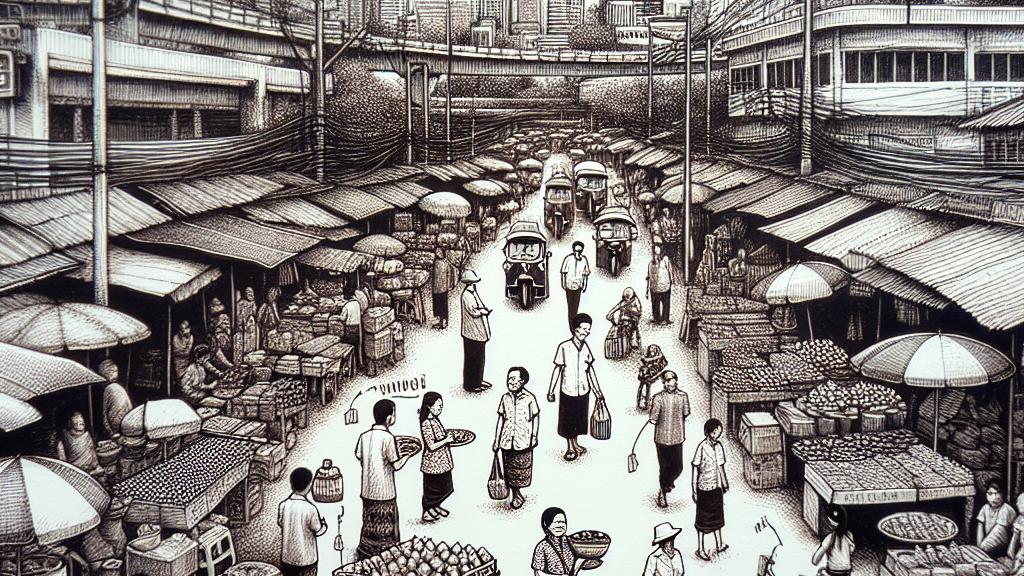New Regulations for Street Vendors in Bangkok Favor the Poor
Overview
- Bangkok enforces new rules for street vendors, allowing only those on welfare.
- Migrant workers are strictly prohibited from assisting in vending.
- Vendors must ensure their income stays below 300,000 baht annually.

Examining the New Regulations
In a significant policy shift, Bangkok has officially rolled out new regulations that dramatically reshape the street vending landscape. Effective immediately, these rules mandate that only Thai citizens with government welfare cards can operate as street vendors. What does this mean for those who have relied on this form of income? It aims to directly support the poorest members of society, enhancing their ability to earn a living while navigating one of the busiest urban environments in the world. This step not only reflects a targeted approach to poverty alleviation but also represents a commitment to uplifting local communities in a city known for its rich cultural tapestry.
Understanding the Specific Rules
The regulations spell out several detailed requirements—each designed to reinforce support for low-income residents while maintaining order on the streets. For instance, every vendor must demonstrate their eligibility by holding a government welfare card and ensuring that their income doesn’t exceed 300,000 baht a year after deducting business expenses. This figure isn’t arbitrary; it serves as a benchmark for targeting support toward individuals who genuinely require assistance. Furthermore, the prohibition against hiring migrant workers introduces an added layer of complexity, as it underscores the necessity of prioritizing local employment opportunities. Imagine navigating through bustling markets, knowing that each vendor not only contributes to the vibrant atmosphere but also relies on these carefully constructed rules for their livelihood.
Impact on Bangkok's Street Food Culture
Bangkok is revered worldwide for its street food scene—a delightful mix of flavors and culinary artistry that can transform any casual stroll into a gastronomic adventure. However, the implications of these new rules extend beyond administrative adjustments; they could alter the very essence of food culture in the city. Let’s consider popular vendors like Thipsamai, famous for its legendary pad thai, where every bite tells a story of tradition and community. Yet, by limiting this opportunity to Thai nationals, the vibrancy that migrant vendors brought with their diverse offerings may diminish. The discussion surrounding these changes is essential; it revolves around the balance between supporting local vendors and preserving the rich, eclectic food culture for which Bangkok is known. Engaging with all stakeholders—including local communities, food enthusiasts, and policy-makers—will be crucial in finding a path forward that honors the history and artistry of street food while addressing the pressing economic realities faced by many families.

Loading...